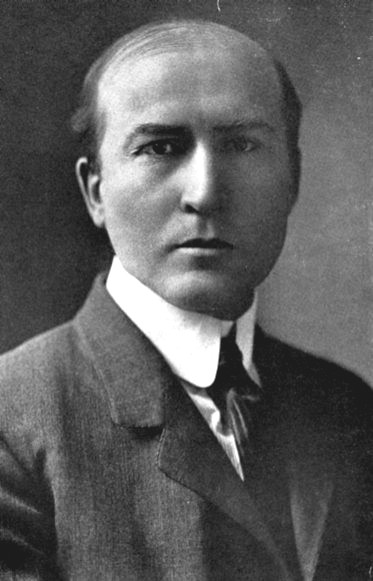| Profile | Major Works | Resources |
Thomas Nixon Carver, 1865-1961.


Thomas Nixon Carver was an American economist, and long-time professor at Harvard.
Born in rural Iowa, the son of a Quaker farmer. Carver's early education was rudimentary, and he seemed destined for a farming life. By his own confession he never showed much aptitude for school, and despite never attending high school, nonetheless decided to enroll in Iowa Wesleyan University in 1882 on a whim. His studies, however, were repeatedly interrupted by farm work. In 1887, Carver left Iowa, and accompanied his father and brothers to southern California, where they had decided to set up a new farm. He was soon married, and decided to resume his collegiate career, enrolling at the University of Southern California (USC), obtaining his B.A. in 1891. During his USC period, Carver came across the philosophy of .Herbert Spencer, the subject of his first publication.
Carver decided on an academic career, and went to Baltimore to pursue graduate studies at the Johns Hopkins University. Although he had never studied economics before, he enrolled in the program under Kinley. Despite his inadequate preparation, Carver flourished at Hopkins. R.T. Ely was on his way out, and Hopkins made up for it with the appointment of Sidney Sherwood, and invited lectures from John Bates Clark and Henry C. Adams. Carver was thus present for the conversion of Johns Hopkins to the Marginalist Revolution. Carver joined Sherwood's study group, where he was introduced to the works of Eugen von B÷hm-Bawerk and Alfred Marshall. This would lead to his 1893 QJE article on abstinence and interest.
Financial difficulties, however, forced Carver to transfer in his final year from Hopkins to take up a fellowship at Cornell. Carver 1894 QJE article on wages and value (an expansion on Clark) was submitted as his Ph.D thesis at Cornell. Carver promptly took up an appointment as a assistant professor in economics and sociology at Oberlin College, an undergraduate liberal arts college in Ohio, where he would remain for the next few years.
In 1900, Harvard president Charles W. Eliot plucked Carver out of Oberlin and installed him as assistant professor at Harvard (to replace Dunbar). By a series of coincidences (Ashley's resignation, Taussig's breakdown), within a year, Carver found himself as the only remaining faculty member at Harvard! Carver plugged in the missing holes with junior lecturers (Sprague, Andrews) and outside hires (Ripley, Bullock, Gay). But Taussig was back by late 1903, and re-asserted his central place in the department.
Carver was full professor at Harvard by 1902, and would remain there for the next thirty years.
|
Major Works of Thomas Nixon Carver
|
|
HET
|
|
Resources on Thomas Carver
|
All rights reserved, Gonšalo L. Fonseca
